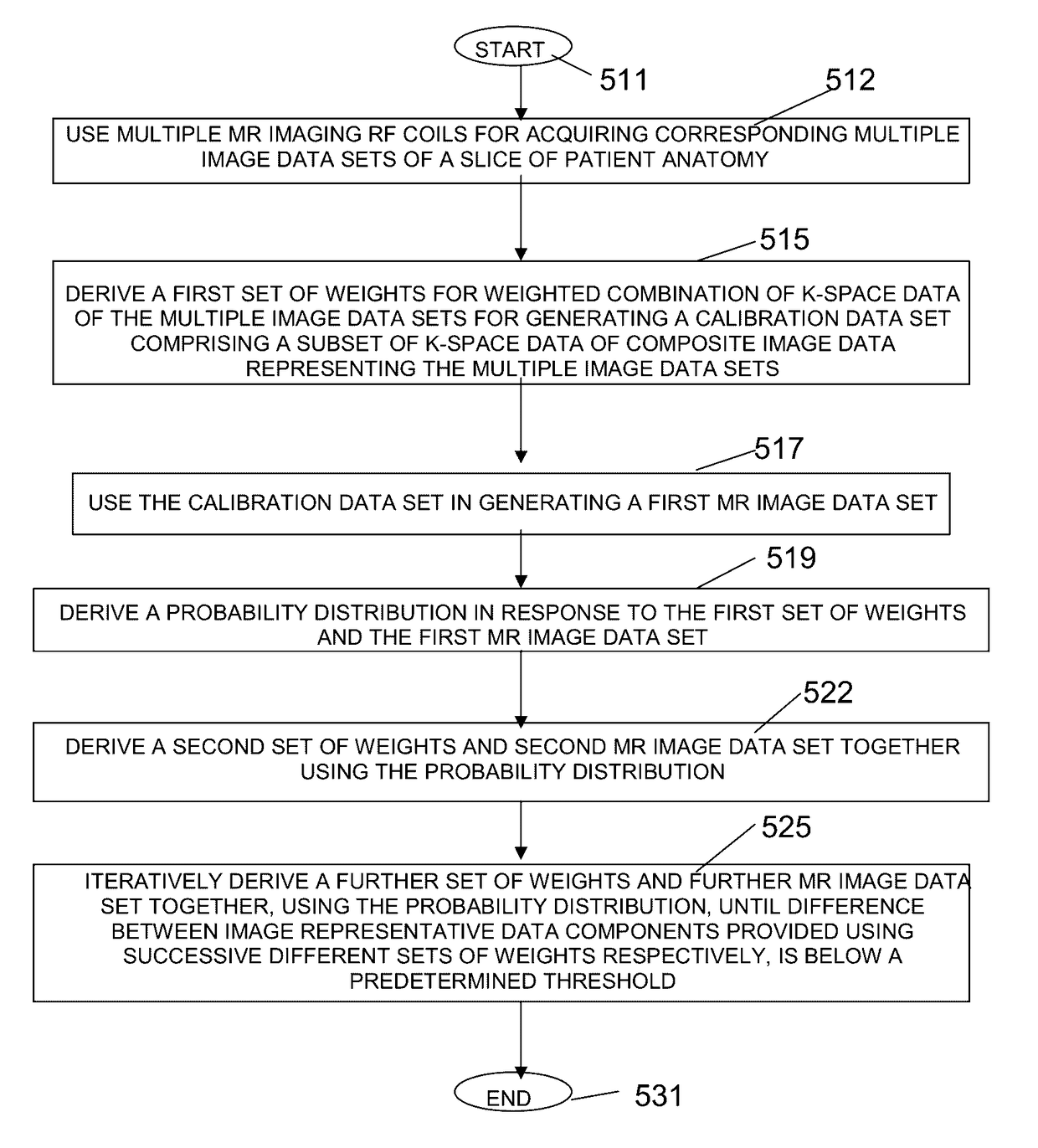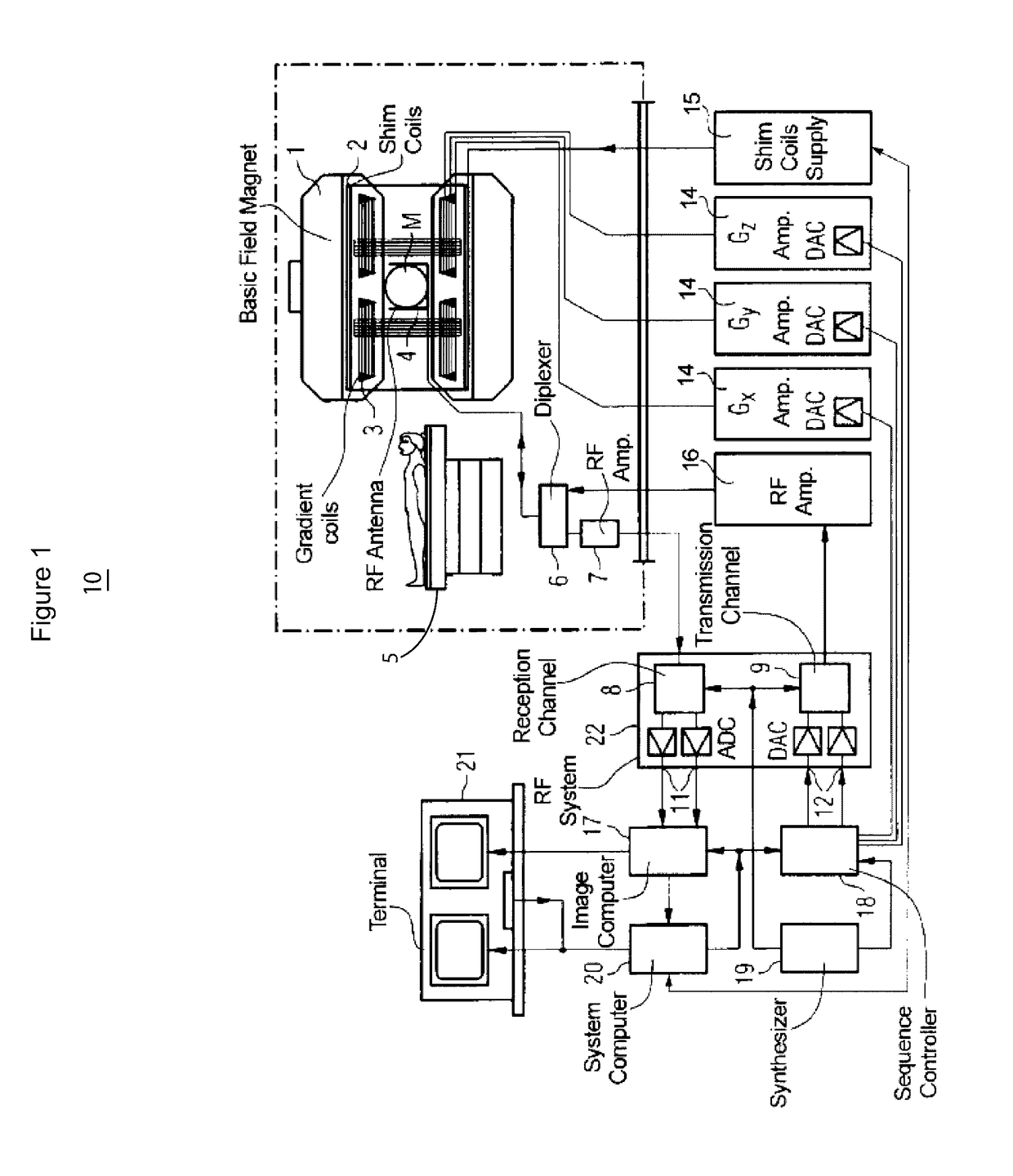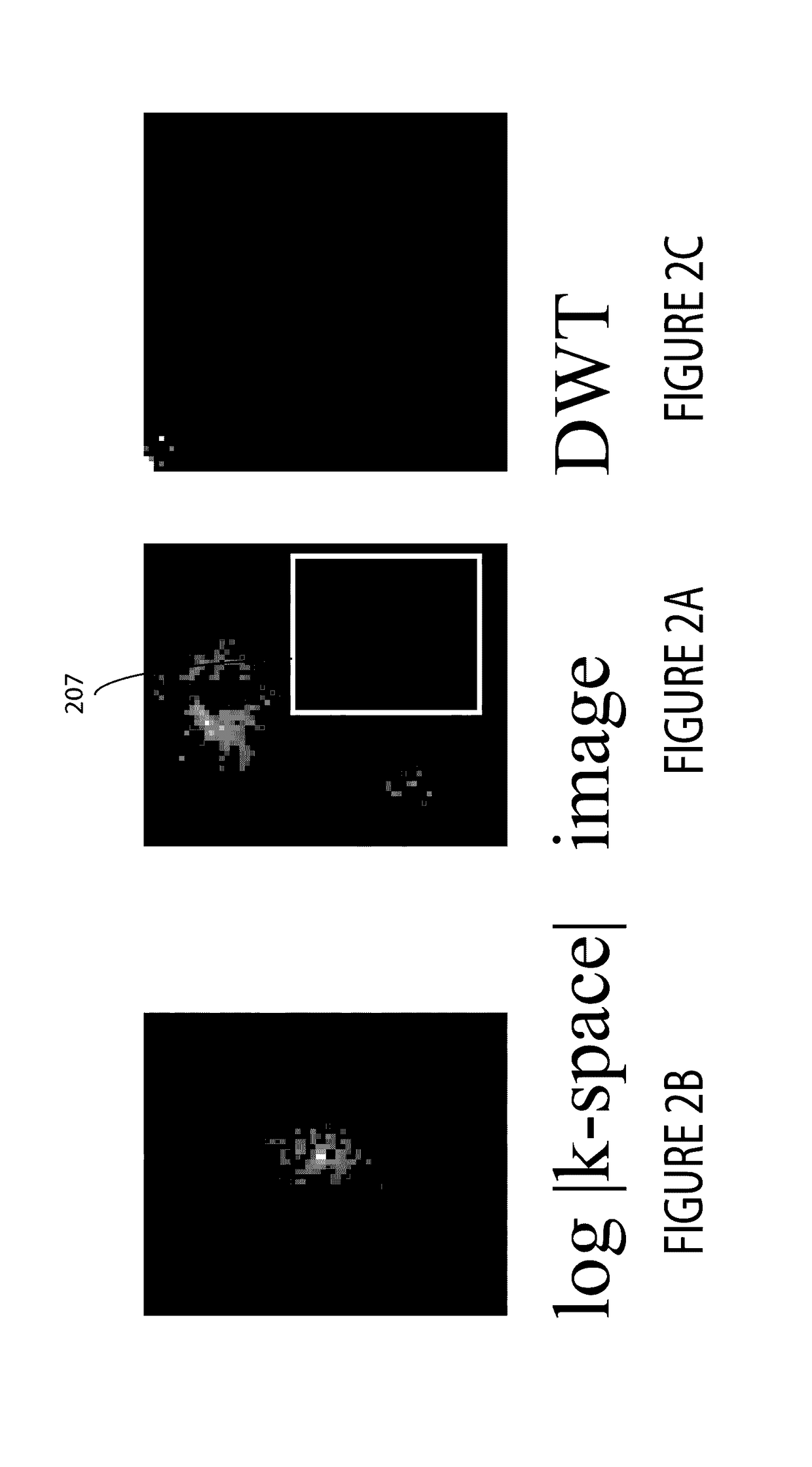System for accelerated magnetic resonance imaging using parallel coils
a magnetic resonance imaging and parallel coil technology, applied in the field of parallel image acquisition and processing in mr imaging, can solve the problems of reducing the field of view (fov), limiting the range of mr imaging, and reducing the number of k-space lines acquired, so as to accelerate magnetic resonance imaging and reduce the number of acquired k-space scan lines
- Summary
- Abstract
- Description
- Claims
- Application Information
AI Technical Summary
Benefits of technology
Problems solved by technology
Method used
Image
Examples
Embodiment Construction
[0012]A system employs a Bayesian interpretation of a reconstruction problem and a joint estimator that unifies a kernel calibration with full k-space reconstruction and denoising using a single solution. The system improves reconstruction quality at high levels of acceleration, accommodating both greater spacing between k-space samples and fewer autocalibration (ACS) lines. The acceleration of magnetic resonance imaging (MRI) by reducing the number of acquired k-space scan lines benefits conventional MR imaging significantly by decreasing the time subjects remain in the scanner and can limit image artifacts caused by patient movement during the acquisition. The system advantageously employs a Bayesian estimation method for jointly calibrating a GRAPPA reconstruction kernel and reconstructing full k-space from undersampled parallel MRI data. The system employs a joint sparsity signal model for processing coil image data in conjunction with observation models for both the acquired da...
PUM
 Login to View More
Login to View More Abstract
Description
Claims
Application Information
 Login to View More
Login to View More - R&D
- Intellectual Property
- Life Sciences
- Materials
- Tech Scout
- Unparalleled Data Quality
- Higher Quality Content
- 60% Fewer Hallucinations
Browse by: Latest US Patents, China's latest patents, Technical Efficacy Thesaurus, Application Domain, Technology Topic, Popular Technical Reports.
© 2025 PatSnap. All rights reserved.Legal|Privacy policy|Modern Slavery Act Transparency Statement|Sitemap|About US| Contact US: help@patsnap.com



